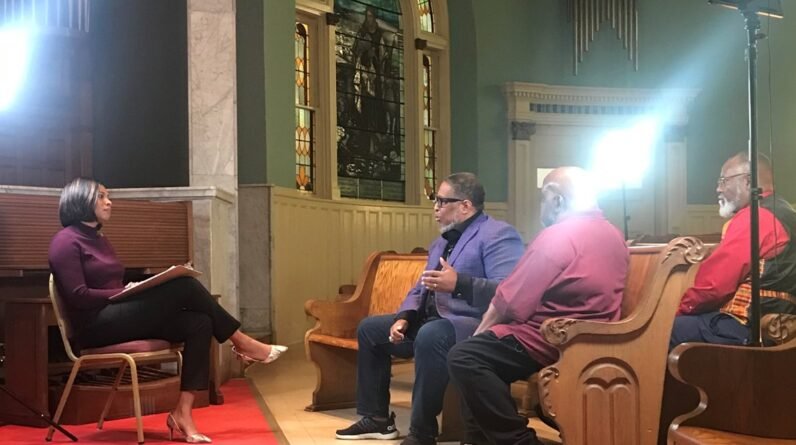
As Easter Sunday approaches, Bishops Rudolph McKissick, John E. Guns and Pastor R.L. Gundy discuss the state of the Black church.
JACKSONVILLE, Fla. — On Good Friday, three prominent faith leaders in Jacksonville, Bishop Rudolph McKissick Jr, Bishop John E. Guns and Pastor R.L. Gundy in a candid conversation, delve into the state of the Black church and bridging generational divides.
Historically, Black churches have played pivotal roles outside the realm of religion.
“For me, the African American church has always been the bedrock of everything within the community,” McKissick said. “We had our tentacles in every area. I think that’s something lost that we’ve got to get back to.”
In the historic sanctuary of Bethel Baptist Institutional Church, a meeting of the minds, with 110 years of pastoral service between them.
“It is the place where certain needs were met, that systems did not allow,” Guns said.
The name “Institutional” was a signal across the country, during a time of segregation churches bearing that name were safe havens where Black people could go for job-training when regular schools were not an option.
“The Black church, I believe, is here to provide a place where the soul of America can be saved,” Gundy said.
And as faith leaders work to welcome members old and new, research shows an exodus of Millennials and Generation Z. According to the Pew Research Center 49% of Black millennials and 46% of Black Gen-Zers reported that they “rarely” or “never” attend religious services.
“They just want to hear the truth, one, two, they don’t want to be judged,” Gundy said. “Three, they want the church to be inclusive, diverse and address the issues of race, sexual orientation.”
“Bishops Guns and McKissick do you address race and sexual orientation in your church?” Keitha Nelson asked.
“I think you have to,” McKissick said. “Pastor Gundy just said it so powerfully. You have to realize that you have everything in your church.”
On the topic of homosexuality, the Pew Research Center found that 32% of those surveyed believe it should be discouraged. 62%, the majority say homosexuality should be accepted.
“And I say to the LBGTQIA plus community, you know my message is my message, I’m not going to bash you, I’m not going to do anything, and I’m gonna love you,” Gundy said. “The question is, can I have a theological difference with you, and still love you? And will you allow me to be your pastor?”
Sexism and a lack of trust are among the list of reasons the Pew Research Center study shows people are leaving the church. Roughly seven-in-ten Black Christians say that opposing sexism is essential to their faith. A large majority of Black Americans, 85% say that women should be able to serve as the senior religious leader of a congregation.
“The Black church, I’m gonna get in trouble,” McKissick said. “The Black church, by and large, has participated in disenfranchisement. That’s the bottom line.”
“We have been a part of oppressing our own people,” Gundy said.
“Yes, which is why we aren’t trusted,” McKissick said.
The Southern Christian Leadership Conference, formed in 1957 lead by the Rev. Martin Luther King Jr. forged change during the Civil Rights movement. And while Black clergy continue to fight for the disenfranchised, the church’s relevance is in question. Bishop Guns believes a reminder of its value is on the way.
“You know, we’re about to have an election that’s going to be traumatic for this country. It’s going to be the stability of institutions like the Black church, that’s going to navigate people whose voices are being muted by inequitable policies and practices,” Guns said. “It’s going to be this, this here, that gets us through it.”







